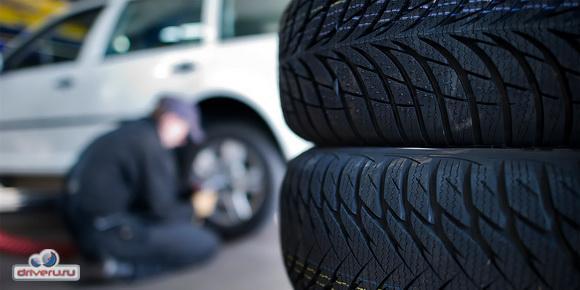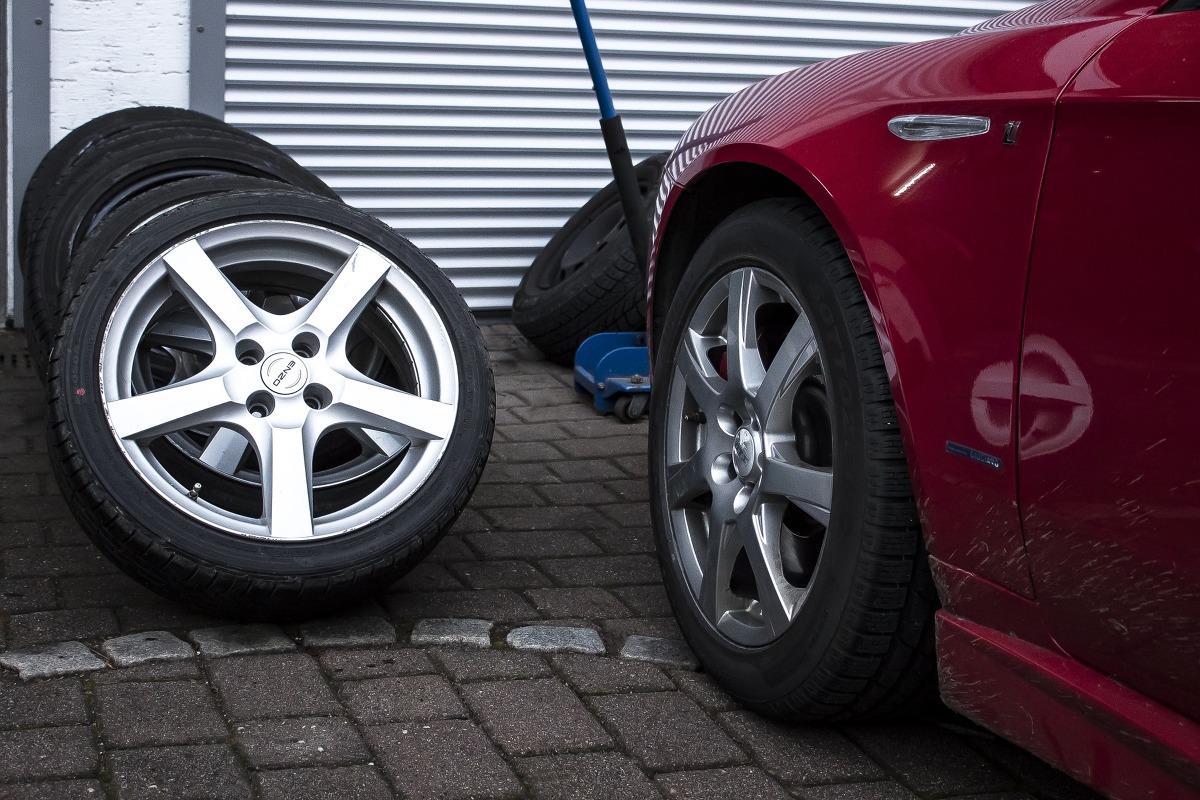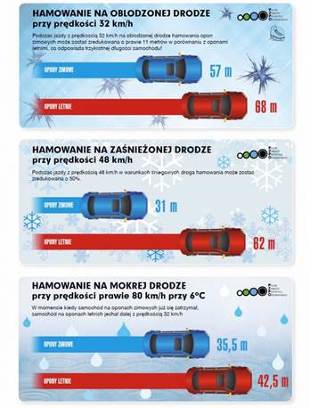
Tire change. Should I change tires to winter when there is no snow?
 It's a dangerous myth to believe that you have to wait until the snow falls before changing your summer tires to winter ones. When braking on wet roads from 80 km/h, even at +10ºC, winter tires will cope better than summer tires - in such conditions, a car with winter tires will stop 3 meters earlier. Moreover, when a car with winter tires stops, a car with summer tires will still drive at a speed of 32 km/h. The performance of summer tires deteriorates as the temperature drops.
It's a dangerous myth to believe that you have to wait until the snow falls before changing your summer tires to winter ones. When braking on wet roads from 80 km/h, even at +10ºC, winter tires will cope better than summer tires - in such conditions, a car with winter tires will stop 3 meters earlier. Moreover, when a car with winter tires stops, a car with summer tires will still drive at a speed of 32 km/h. The performance of summer tires deteriorates as the temperature drops.
 The softer and more flexible tread compound used in winter tires performs better at +7/+10ºC. This is especially important on wet surfaces, when a summer tire with a hard tread does not provide proper grip at such temperatures. The braking distance is significantly longer - and this also applies to all four-wheel drive SUVs!
The softer and more flexible tread compound used in winter tires performs better at +7/+10ºC. This is especially important on wet surfaces, when a summer tire with a hard tread does not provide proper grip at such temperatures. The braking distance is significantly longer - and this also applies to all four-wheel drive SUVs!
See also: Blacklist of filling stations
What do you need to remember? When removing a tire from a rim, it is easy to damage the tire bead or inner layers - using old, maintenance-free tools or ignoring the requirements of tire manufacturers.
– When driving on wet and slippery roads, it is important to be careful, adjust your speed according to the conditions, and also take care of the right tires - without this you will not be able to travel safely. Modern winter tires from well-known manufacturers provide safety in a wide range of weather conditions, so you should change your tires to winter tires or all-season tires with winter approval as soon as the morning temperature regularly drops below +7 ° C. says Piotr Sarnecki, director of the Polish Tire Industry Association (PZPO).
Read also: Testing Volkswagen Polo
